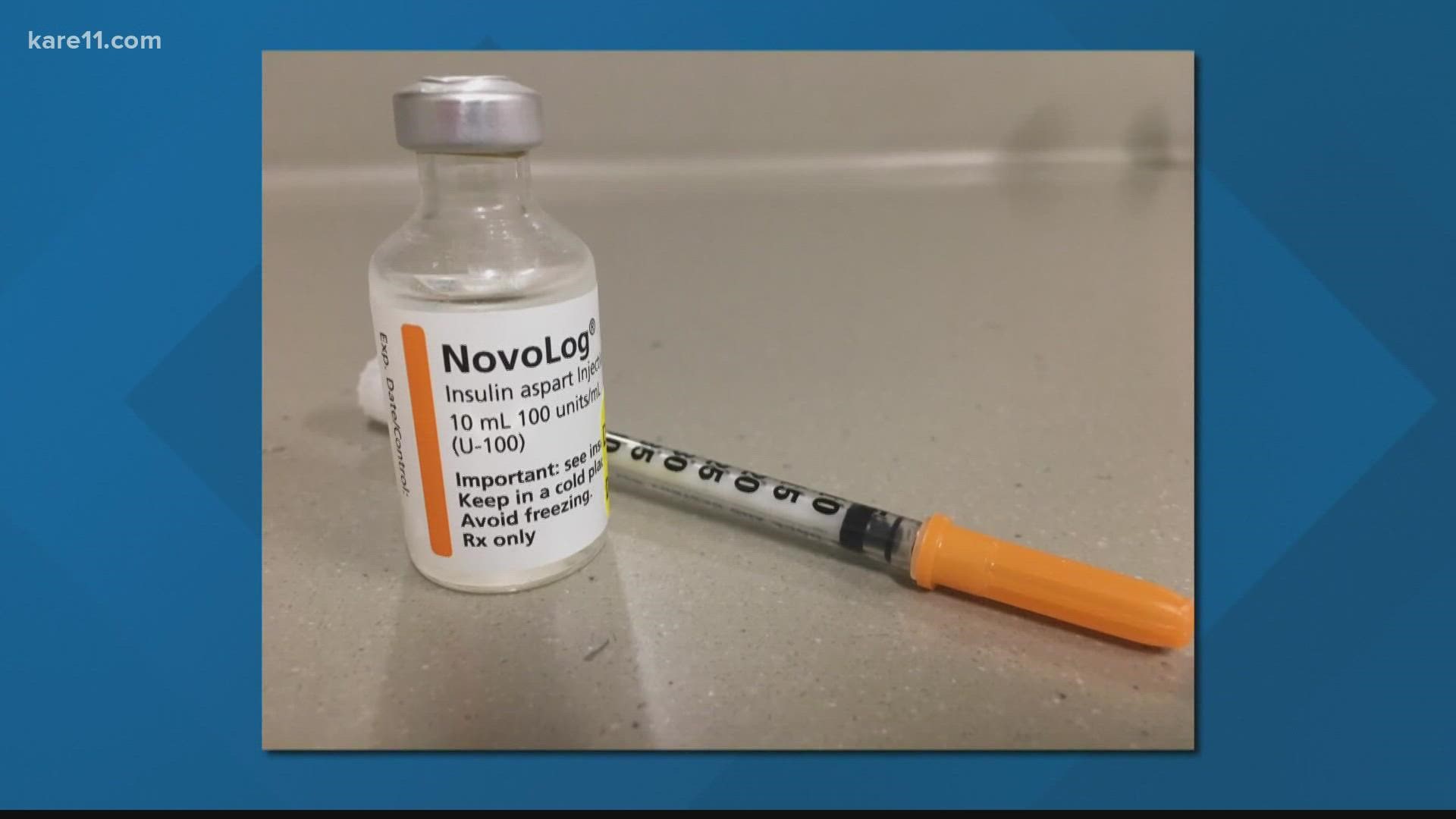ST PAUL, Minn. — Drug makers were back in federal court this week with the aim of dismantling Minnesota's emergency insulin law.
The Pharmaceutical Research and Manufacturers of America, an industry group known as PhRMA, asked the U.S. 8th Circuit Court of Appeals to overturn a lower court's ruling that preserved the new law.
Supporters of the law, which is also known as the Alec Smith Insulin Affordability Act, gathered outside the federal courthouse in St. Paul to lambast the drug industry's legal challenge.
"We know that more than 500 Minnesotans have used the program to access emergency insulin," Rep. Mike Howard, a Richfield Democrat and chief author of the emergency insulin supply bill, told reporters.
"That’s nearly 500 Minnesotans who were in grave danger of losing their life just because they couldn’t afford this life-necessary drug. And what Big Pharma is trying to do in this courtroom today is rip insulin out of the hands of desperate Minnesotans that need their drug," he continued.
Nicole Smith-Holt is the mother of the Alec Smith, who died four years ago at age 26 while trying to ration his insulin, and vowed to continue the quest to save diabetics who can't afford their medication.
"It’s amazing we actually have to be here. We actually have to fight for laws that protect our lives," Smith-Holt remarked. "It’s a tragedy. And we will not stop fighting until we can be guaranteed that this safety net continues to stay in place."
The 2020 law allows diabetics to seek an emergency one-time 30-day supply of insulin from a pharmacy. Patients have the option to enroll in a program to receive 90-day supplies.
Three drug companies - Eli Lilly and Company, Sanofi and Novo Nordisk - are required to donate supplies that are distributed to patients through the program. The donation model was suggested by Senate Republicans, who said drug companies would sue if the state imposed a fee on drug companies to finance the program.
However, the drug industry sued the state anyway, calling it a violation of the United States Constitution's takings clause. The PhRMA lawsuit alleges Minnesota is taking property from drug companies without paying them for it.
"The district court had the power to strike down this unconstitutional law and should have done so," Reid Porter, the senior director of public affairs for PhRMA, told KARE 11.
"The Minnesota law codifies repeated constitutional violations by taking manufacturers’ private property without just compensation instead of addressing a faulty system that stands in the way of common-sense solutions known to help patients afford their insulin," Porter added.
U.S. District Judge David Doty granted the State of Minnesota's motion to dismiss the lawsuit last March, ruling that the federal courts lack jurisdiction in this type of takings claim. Doty didn't rule on the constitutionality of the law itself but said the pharmaceutical companies must first attempt to gain compensation through the state's administrative claims process and the Minnesota State Courts system.
The safety net system is run through the Minnesota Board of Pharmacy, which issues annual reports on the numbers of patients who've taken advantage of it, based on reporting requirements placed on drug manufacturers.
As of March, 465 Minnesotans had tapped into the system, and supporters assume that number has grown in the nine months since then.
Among those who spoke at the courthouse press conference was Sara Ginsberg, whose adult son has Type 1 diabetes and used the safety net program. She said her son had just taken a new job with the promise of health benefits, and then discovered he had no drug coverage.
He changed jobs but ran low on insulin before his health coverage began. Ginsberg read a letter from his son saying he say a man on the street corner holding a sign that read, "Need insulin." The man didn't know about the emergency program, so Ginsberg's son took him to a pharmacy.
Minnesota Attorney General Keith Ellison, who represents the state in defense of the insulin law, issued a statement that reads in part:
"The researchers who discovered insulin sold the patent for $1 — one dollar — because they didn’t want money or the lack of money to get in the way of insulin saving lives. And yet the price of insulin has increased 1,100% in the last 20 years. Pharmaceutical companies have made millions, if not billions, in profit off insulin while people are still dying because they can’t afford it."

